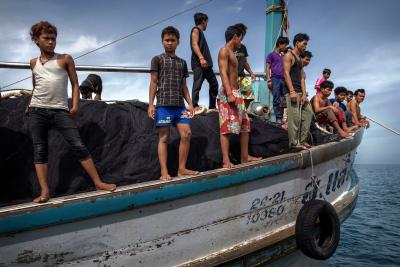'End slavery' in fishing industry, says FAO

ROME -- The FAO, the Food and Agriculture Organization of the United Nations, and the Holy See collaborated Monday for World Fisheries Day in a mission to uncover and challenge the ‘modern day slavery’ and ‘exploitation’ which plagues today’s fishing industry.
For centuries, the sea has been a ‘symbol of freedom and of civilizations.’ Today, fishing and aquaculture industries support one tenth of the global population and are fundamental in the economy and society of developing countries.
However, the fishing industry also has a dark side. When looking further into its murky depths, one can find illegal employment on the high seas, along with modern slavery and abuse of the most vulnerable workers on board ships. The exposal and description of such activity was highlighted in the joint initiative of the FAO and the Holy See on the occasion of the 18th World Fisheries Day, celebrated Monday.
The fishing industry on a global level, said the Director of the FAO Jose Graziano da Silva, generates annually around 135 billion dollars on export revenues and is expected to offer employment and income to one tenth of the world’s population. It is also the source of 17 percent of animal protein.
Silvia then moved on from the economic benefits, stating, “But on board these fishing vessels at sea, there are still too many cases of slavery,” if not slavery, then certainly cases of human trafficking of vulnerable migrants.
The World Organisation of Labour estimated that, on average each year, 24,000 fishermen die in such a sector plagued with the disrespect of human rights, conflicts over fishing territories, child and forced labour, and the trafficking of human beings.
Within the international conference, evidence was shown of migrants forced to work three-year contracts in isolation, paid 130 dollars a month and a penalty of over 2,000 dollars for each breach.
Hence, the FAO Director concluded that his organisation and the Holy See are working together and calling on governments to “collaborate, with the ultimate goal of putting an end to this modern day slavery. The conditions, in light of the new regulatory framework in place since 2017, are to ensure we maintain the fishing industry on an ethical and sustainable level, free from exploitation of labour and workers.”
sw


